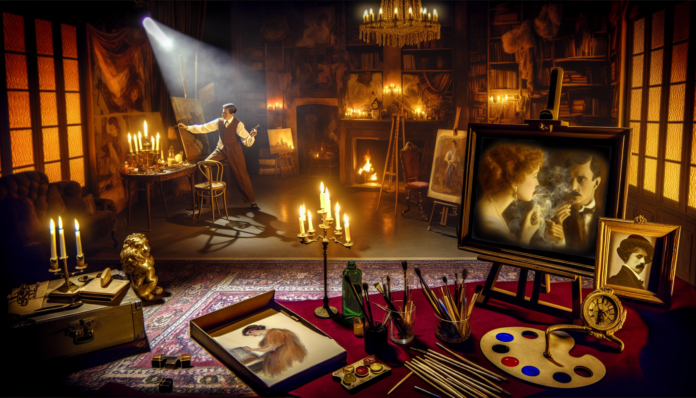Introduction
Jean Cocteau, a multi-talented French artist, poet, and filmmaker, danced through the glittering world of the early 20th century, leaving behind a legacy rich with creativity and controversy. His scandalous affairs, particularly with influential figures, mirrored the liberating yet tumultuous spirit of the Roaring Twenties. At a time when societal norms were being challenged, and modernism was on the rise, Cocteau exemplified the fusion of art and passion. As the decades passed, his escapades became not just a reflection of his life but also a lens through which we can examine shifting moral attitudes regarding love, sexuality, and the pursuit of the avant-garde.
The Scandal
Cocteau’s most notable affair was with the young poet and playwright, Raymond Radiguet. Meeting in 1916, Cocteau was mesmerized by Radiguet’s talent and beauty. Their passionate relationship sparked both admiration and scandal within artistic circles. The scandal intensified when Radiguet’s poem, “The Devil in the Flesh,” which depicted their relationship, was published in 1923. This work described the hedonistic lifestyle of the couple, focusing on themes of forbidden love and youthful sexuality.
As Cocteau immersed himself in this romance, the society that revered him often struggled with the implications of his life choices. Critics and contemporaries alike were vocal about their discomfort. “He speaks of love as if it were art, completely detached from moral consequence,” wrote one disapproving critic in Le Figaro. Their affair, a blend of tender exploration and reckless abandon, exposed the era’s paradox. Many celebrated the audacity of their love, while others condemned it as a moral failing.
Moral and Cultural Analysis
Society’s Reaction
The reaction to Cocteau’s relationship was a mixed bag of admiration and disdain. Avant-garde circles lauded him as a visionary, a pioneer redefining love and art, while more conservative factions decried him as a degenerate. This polarization reflected the wider societal changes taking place during the Jazz Age—an era characterized by liberation and yet haunted by traditional values.
-
Positive Reception:
- Celebrated as a romantic rebellion.
- Viewed as a catalyst for discussions on sexuality.
- Negative Reception:
- Labeled as immoral by traditionalists.
- Critique of the perceived frivolity of the artistic elite.
Consequences for Those Involved
The scandal followed both Cocteau and Radiguet, altering their lives. Radiguet’s sudden death in 1923 at age 20 added a tragic finality to their affair, while Cocteau remained haunted by it, channeling his grief into his art. His subsequent works delved deeper into themes of love and loss, indicating how their affair reshaped his creative voice.
Modern Perspectives
Today, Cocteau’s relationships would likely be viewed through a more nuanced lens, where sexual fluidity and the exploration of identity are more broadly accepted. Their passionate love story might be celebrated rather than condemned, with the focus shifting towards themes of artistic partnership and collaboration.
- Contemporary Views:
- Greater acceptance of same-sex relationships.
- Emphasis on artistic freedom and personal truth.
Cocteau’s affair with Radiguet reveals not only the complexities of love but also stands as a symbol of an era wrestling with its identity. As we look back, we see how deeply intertwined art and personal lives can be, a reality that connects us across decades, reminding us that even in scandal, there can be beauty and insight.

